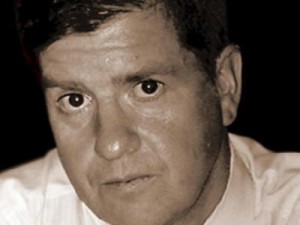OVER 80
Impaired Driving Solutions - Lawyer Brian Starkman DUI/DWI (Ontario)OVER 80
This is the most common drinking and driving allegation. It is an offence to operate a motor vehicle in Canada with an alcohol level that exceeds 80 milligrams of alcohol per 100 millilitres of blood. If the prosecution can prove that at the time of driving your blood alcohol level was in excess of that legal limit, you will be found guilty.
Defences to this charge are far more numerous and complex than the defences to an impaired driving charge. Moreover, innovative and “exotic” defences will often gain traction for a limited period of time before a higher court will shut down the defence. An experienced lawyer will always be aware of these defences during their “shelf life” and use such defences to their client’s advantage.
There are defences to over 80 charges that have stood the test of time.
1. Evidence to the contrary – A breathalyzer machine is not infallible nor are the people who operate them. Because of this fact, both Parliament and the courts have allowed persons who dispute the accuracy of the breathalyzer machine to challenge the results in court. On July 2nd of 2008, the Criminal Code was amended to make it more difficult to advance this type of defence on an Over 80 charge. Prior to July 2nd, the defence was not required to lead evidence that the breathalyzer intstrument malfunctioned in some way. That all changed with Bill C-2 which became the law of the land on July 2nd. Now, your lawyer must lead evidence to show that the instrument malfunctioned or that the breathalyzer operator erred in his use of the instrument. An experienced lawyer will be knowledgeable and up to date on both the law and the technical issues to be aware of relating to the proper operation of a breathalyzer.
2. Reasonable and probable grounds – In the United States it is referred to as probable cause. In essence, reasonable and probable grounds speaks of the prerequisites that a police officer must have in order to make a lawful arrest for a drinking and driving charge. Without the prerequisites being proven in court, breath samples that are in excess of the legal limit will often be excluded from evidence.
3. The right to counsel – All persons are entitled to speak to a lawyer before providing breath samples into a breathalyzer and, on occasion, they are also entitled to speak to a lawyer before providing a breath sample into a roadside screening device. This general right also has many correlative rights, for example, the right to speak to counsel in private and the right to counsel of one’s choice. This has become a very fertile ground for arguments in over 80 charges. An experienced lawyer will be well versed in the law related to right to counsel and more importantly, will keep abreast of the changes in the law in this area which can often occur at a furious pace.
4. Technical issues – As this is a technical charge it lends itself to technical defences. While the proverbial undotted “i” or uncrossed “t” may often not be sufficient to result in an acquittal, judges will expect the prosecution to hit the “strike zone” at least on the significant technical prerequisites to the proof of this charge. An experienced lawyer will possess the knowledge required to sort through what is important and what is not when listening to police testimony.

